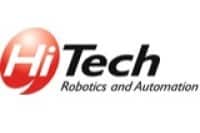How are profits distributed following EOT ownership?
EOT’s are a form of indirect company ownership and as such dividends would not get paid directly to employees should they become payable.
When profits and cashflow allow, a contribution can be made to the trust which is then available to be shared amongst the employees. However, since such distributions are taxable on the recipients, an EOT owned company would first seek to make use of any tax-free bonus allowances available for that tax year.
Providing certain key conditions are met, each employee will be exempt from income tax on the first £3,600 of bonuses per year. These are great tax benefits to employees but note that National Insurance Contributions are still payable.
Exiting shareholders (and their family members) who continue to be employees of the company are not eligible to receive distributions from the EOT without revoking the beneficial tax status of the EOT arrangements.
It is important to note that under a typical transition to EOT ownership, there will be deferred consideration payable to the exiting shareholders and it will only be once this is fully repaid that profit distributions will be available for the benefit of the trust beneficiaries (i.e. the employees).
The tax-free bonus of up to £3,600 per employee per annum should be paid to all qualifying employees on the same terms. To qualify, the bonus must meet the ‘participation’ and ‘equality’ requirements, this means that:
- These tax free bonuses must be made payable to all eligible employees
- Eligible employees must participate ‘on the same terms’ determined by one of the following conditions: remuneration, length of service, or hours worked.
Should these conditions be breached, the bonus would be subject to income tax.
- Of course, the company can pay bonuses in excess of £3,600 per employee, but the tax relief is limited to the first £3,600 per employee per annum.
It is important to note that the shareholders do not need to sell the entire share capital of the company to the EOT. In fact, the shareholders can retain up to 49% of the shares. In this situation, the shareholders are still entitled to receive their proportion of any profit distributions made with the proportion held by the trust available to distribute to the employees.
Our EOT advisers
We have advised many businesses to complete their transition to employee ownership. Hawsons have been working with businesses on EOTs since they were introduced in 2014, completing our first deal in 2016.
We are a member of the Employee Ownership Association who represent organisations that are employee-owned or transitioning to employee ownership across the UK.
Pete Wilmer
Corporate Finance Partner

Pete Wilmer
Senior Partner
Pete leads the Corporate Finance offering across the firm, having has spent much of his career within a large international accountancy firm and corporate banking before returning to Hawsons, where he started. Working with businesses of all sizes, Pete has an exceptional breadth of experience which he brings to the benefit of clients.
An early adopter and passionate believer in good employee ownership, Pete has helped numerous businesses transition to employee ownership and works extensively to promote the employee ownership model.
Related content
TMS Europe complete transition to an Employee Ownership Trust
Peter Wilmer and Jack Ware, members of the Hawsons Corporate Finance team, acted as lead advisors for TMS Europe Limited’s (“TMS”) transition into employee ownership. Ryan Fitzpatrick from Shakespeare Martineau LLP provided legal advice on the transaction. TMS Europe...
Hi-Tech Automation – 12 months into Employee Ownership
Employee Ownership is where the whole or part of a Company is owned by, or on behalf of, its employees. The government introduced some new and relatively generous tax reliefs for employee-owned companies in 2014 and since then Employee Ownership Trusts (“EOTs”) have...
Employee ownership trust problems
In this article, we are going to outline some of the problems that might arise if the transition to employee ownership is not managed and advised on correctly.Valuation of the company When selling your business to an EOT it is very important that you keep the...




